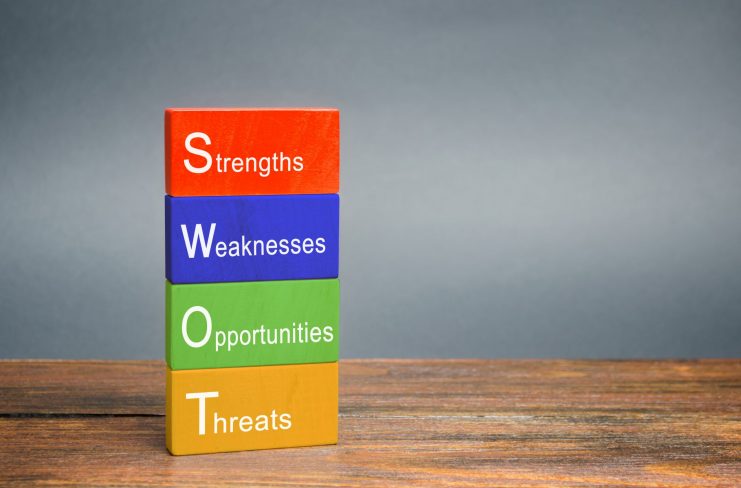
A One Page Strategic Plan
October 20, 2020
3 Practices to Make Room for Strategic Improvisation℠
October 20, 2020The Seven Cs of Pandemic Perseverance

This blog is dedicated to all the people who either can’t work from home and keep a paycheck coming for their families (those in the service and tourism industries as an example), or those who must work on the front lines as healthcare workers, emergency workers, senior living employees, etc. Thank you for the sacrifices you have and will make as a result of this pandemic.
A while back I wrote a blog about the Seven C’s of Strategic Improvisationsm . These were the seven things you should pay attention to if you wanted to achieve your strategic plan while learning to be flexible in the face of a changing environment.
BUT now there is only one C…
ONE C that has literally dominated most everyone’s life over the last 6 to 8 weeks. And since you’ve been reading it probably 100 times a day on the internet, I’ll leave mention of it out of this post.
But with the arrival of a near-global self-quarantine, how exactly do we manage our strategic priorities? What will become of the plans we so meticulously crafted now that we are in a massive holding pattern? How will we stay connected to our goals and the team that will help us reach them if we are all homebound? Are they important, or are bigger things taking their place?
In this time, our work goals remain important but we also have to add some additional things to our “To Do” list that remind us we are part of a larger community. We have to remember what to do in times of trouble so we can stay focused and stay sane. It is with that thinking in mind that I give you
The Seven C’s of Pandemic Perseverance:
Calm
It’s really easy to get all twisted up about not only what’s happening but the predictions for the future. Stay informed, stay knowledgeable and then turn it off. Allow yourself some space away from all the doomsday predictions. Stay calm. No one can make good decisions when they’re frightened or frenzied, not to mention having that perspective is horrible for your headspace. This situation will pass. We might even learn some good things as a result.
Communicate
– Stay in communication not only with your outside colleagues and work place but with the person(s) with whom you are sharing your time in captivity. Remember, the quarantine will be that much more pleasant if you’re getting along. Because of work, many will also be in touch with their colleagues through a variety of different media (Skype, Teams, GoToMeeting, Email, Slack, etc.). Remember to connect with them on a personal level to ask how they are doing.
As I said, this pandemic is a human thing and I think most of us work with humans – although I’ve had a job or two where I definitely wondered – so communicate clearly and regularly with them. It will help build relationships for when normalcy resumes.
Connect
We are fortunate to live in a time where non-contact connections are so easy. Reach out to a friend you might not have spoken with in a while, either on the phone or via text, and ask them how they are doing. Offer to check in from time to time to see how things are going. The good news about this pandemic is that we have some free time that we didn’t have before. Many have long commutes suspended and therefore have an extra hour or two per day. Others have additional time that they took to get ready for work which now can be done in pajamas – unless you video conference a lot! Use that time to make old connections.
On a side note, I spoke to a travel agent and thanked her for dealing with the craziness in such a professional and courteous manner given some of the angst and irritation she most definitely was dealing with. We had a good laugh and we connected with each other making both her day and mine a little bit more enjoyable.
Care
– If you are fortunate enough not to be in a high risk category for this virus, remember that others are. I have a dear friend who is immunocompromised. It’s weird that I can’t see her, but I have offered to do things to help. Same with my elderly neighbor. Remember also, that others may not want to see themselves as needing help… let them know you both can help each other so they feel part of helping someone too.
Calisthenics
– OK – no one uses this term anymore except the US armed forces. Everyone says ‘workout’. Give me some leeway here. I had to shoehorn the concept into a ‘C’-word…. Whatever you want to call it, try to keep moving in your exile. Download a workout or yoga routine to practice in your home. Take a walk if you are able to stay away from other people. Do squats. Bench-press the dog (if you have one of those little ones). Do something that keeps you active for part of the day. It’s good for your brain and body.
Cabin Fever
We don’t know how long this will last. We might be penned up for a while. Do what you can to change up your routine. Read a book if you normally watch TV. Play a card game….you know, that weird activity people did before video games, Social Media, and streaming service binging? (gasp….when was that?!!). Write something about your experience during this pandemic. Do something that takes you out of the idea that you’re stuck on a little island. Our family loved playing Dictionary (see directions below!). It was always good for a laugh and got us in a creative mode. If there are four or more of you at home together, it’s really quite fun. Try new things to chase away your cabin fever.
Cook or Clean
OK, neither of these may sound like tons of fun for some people but you might feel better if you take time to clean out those stuffed drawers or closets you’ve been meaning to get to for a while. What better time to do it than when you are obligated to stay at home? I realize that some people don’t like to cook but if you do, making some meals you can freeze for later when you are back at work and don’t feel like cooking can really feel like you’ve accomplished something. It also may allow you a break from your co-habitants or an enjoyable activity to share with them.
OR
You can binge watch Breaking Bad or The Crown if nothing else comes to mind.
Just remember, we’re all in this together.
Literally.
Dictionary Game Directions:
This game is very difficult to be played with less than 4 people so if you are fewer than that try a game of cards instead.
Grab small slips of note paper and give each person a pen/pencil. Decide if you’re going to play to 50 or 100 points. Grab a dictionary (you know, one of those old books with the definitions of words in them!) or go online to Dictionary or Webster or or any one of the others you can find. Pick someone to go first – this person is called The Holder of the Truth. The Holder of the Truth chooses a word no one knows the definition of. It usually takes two or three tries to find a word someone doesn’t know, but eventually you’ll get there. That person then tells everyone how to spell the word and what it is…noun/verb/adjective.. etc.
The Holder of the Truth writes on a slip of paper the real definition of the word. Everyone else writes a made up definition. All the definitions are collected together and The Holder of the Truth reads all of them. It helps if they are numbered so people can remember the number. It also helps if the slips of paper are read behind something as the sizes of the unfolded paper or the writing can be a giveaway.
After going through all the definitions (sometimes this might take two or three times as people want some re-read) everyone votes for the definition they think is the right one. Points are awarded based on which definition each person guesses. The most points are awarded for having others guess your false definition. We usually play 5 points to select the correct definition, 10 points if you write a definition others choose. You can decide for yourselves how you wish to award the points.
It’s really fun to hear people imitate ‘dictionary talk’ when they make up their definitions. Others manage to make up very obscure definitions that are either hilariously funny or really so good you can’t tell they are made up.
The Holder of the Truth then passes to the next person until everyone has a turn at being ‘out’ for a round. You should all have an equal amount of turns before your reach your point level.
Upsides: Good laughs and an expanded vocabulary
Downsides: Competition can get cutthroat



